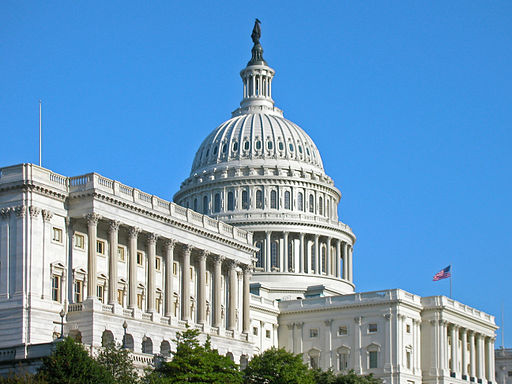On Monday, March 28, President Biden released his proposed budget for fiscal year 2023, previewing the White House’s funding priorities, which includes an increase in federal education spending. While Congressional approval is required to make the proposed budget a reality, as proposed, the President’s plan would provide historic funding for Title 1 schools as well as boosts for special education, early childhood programs and programs responding to the impact of the pandemic on students and staff.
Historic proposed increase in funding for Title 1 schools
Among the top highlights in the President’s budget is a significant increase in funding for Title 1 schools serving students in low-income communities. The proposal close to doubles the amount allocated for Title 1 in 2021, with a proposed $20.5 billion in discretionary funding and $16 billion in mandatory funding.
The increase is intended as “a major step toward fulfilling the President’s commitment to address long-standing funding disparities between under-resourced schools — which disproportionately serve students of color — and their wealthier counterparts.”
Boosts to special education and early childhood programs
Also included in the President’s proposal are boosts to funding for special education and early childhood programs. The budget includes $16.3 billion for Individuals with Disabilities Education Act (IDEA) state grants, a 21.8 percent increase over 2022 funding levels, and $502.6 million is for IDEA preschool grants, a 22.7 percent increase.
Early childhood programs would see increases as well, with $7.5 billion proposed for the Child Care and Development Block Grant (an 18 percent increase over FY 2022), $12.2 billion for Head Start (a 9.6 percent increase) and $450 million for Preschool Development Grants (a 35.6 percent increase)
Funds to respond to pandemic’s impact on students and staff
Recognizing the pandemic’s impact on students and staff alike, the President’s budget would make investments in staff retention and student support, including:
- $350 million to support the Department of Education in identifying and scaling models that improve recruitment and retention of staff in education by improving support for educators, providing access to leadership opportunities and more.
- $1 billion in funding for schools to hire additional school counselors, psychologists and social workers.
- $468 million in funding for community schools providing wraparound services to students and their families.
Other highlights
Other items of interest in President Biden’s budget include:
- Community Learning Centers: The proposal includes $1.31 billion for the Nita M. Lowey 21st Century Community Learning Centers. These centers provide academic enrichment opportunities for students along with access to health and social services programs, particularly for students in high-poverty and low-performing areas.
- Impact Aid: The President’s budget slightly reduces the amount allocated for Impact Aid, a program which reimburses school districts for lost revenue associated with the presence of nontaxable federal property. The proposed budget includes $1.54 billion for the program, a decrease of 1.03 percent from FY 2022.
- Perkins V CTE Grants: The proposed budget proposes $1.35 billion in federal funds for state-level grants for career and technical educational (CTE) programs, a reduction of 1.8 percent from FY 2022.
What’s next?
The federal fiscal year will begin on Oct. 1. While the exact timeline for the Congressional budget process is still unknown, Appropriations overview hearings will begin in the House Appropriations Subcommittee on Departments of Labor, Health and Human Services, Education and Related Agencies on March 31.





